FSH products are divided into two categories: 1) those extracted from the urine of post-menopausal women: Repronex, Menopur and Bravelle and 2) those made using genetic recombinant technology: Gonal-F and Follistim.
Urinary FSH Products (Repronex, Bravelle, Menopur)
Repronex- 75 IU FSH and 75 IU LH or 150 IU FSH and 150 IU LH
Menopur- 75 IU FSH and 75 IU LH
Bravelle- 75 IU FSH
FSH is excreted in the urine and levels increase after menopause because of the lack of good quality eggs. These products are made by extracting and purifying the urine from postmenopausal women. Repronex and Menopur contain equal amounts of FSH and luteinizing hormone (LH) whereas Bravelle is further purified to remove all but trace amounts of LH.
These products are reconstituted from a powder and given with a syringe either intramuscularly or subcutaneously. The manufacturers provide recommended doses, however, doses vary based on each patient’s response and treatment history.
Recombinant Genetically Engineered Products (Gonal-F, Follistim)
Gonal-F and Follistim contain 75 IU of FSH in each vial and are made by cloning the gene which codes for human FSH. The gene is inserted into mammalian cell cultures which then produce FSH. These drugs are given subcutaneously using a specially designed pen.
Urinary Products vs. Gonal-F/Follistim
There is an ongoing debate about the need to add small quantities of LH to the FSH stimulation cycle. Many physicians use Gonal-F or Follistim alone whereas others add one of the urinary products which contain LH. Clinically there appears to be little difference between these two protocols except in certain patients like those with polycystic ovarian syndrome (PCOS).
Additional LH may also be beneficial in patients who are treated with Lupron (leuprolide), Ganirelix (ganirelix diacetate) or Cetrotide (cetrorelix acetate). These drugs are used to control the length of the follicular phase and prevent the premature release of the eggs. Alternatively, human chorionic gonadotropin (hCG), which mimics LH, can be used to add LH activity.
Many infertility specialists prefer to use the urinary products because they are significantly less expensive. Clinically all of these products stimulate follicular development and have varying effects on endometrial development.
Treatment Protocols and Monitoring
FSH treatment protocols usually include Lupron, Ganirelix, or Cetrotide to control the length of the follicular phase and time ovulation. Medications and doses are individualized for each patient to provide the best stimulation and reduce the chance of side effects and multiple births. Patients must come to our office throughout the treatment cycle for ultrasound follicle scans and estradiol hormone measurements. Doses of FSH are adjusted based on the results of these tests.
Once the follicles mature an injection of human chorionic gonadotropin (Ovidrel, Profasi, etc.),is given to finally prepare the eggs for retrieval or to schedule an IUI.
FSH should only be administered by a reproductive endocrinologist/infertility specialist thoroughly trained in its use. These products can cause serious side effects if not administered and monitored properly. This applies to IVF patients as well as those undergoing stimulated intrauterine insemination cycles (IUI).






